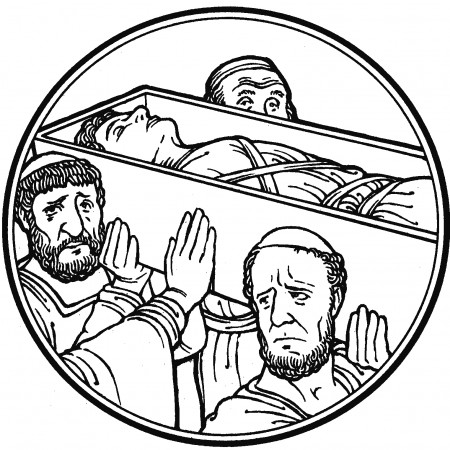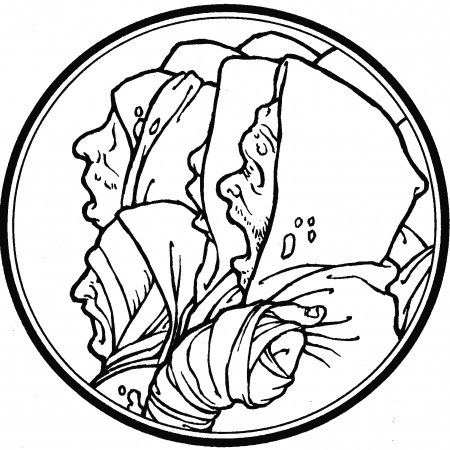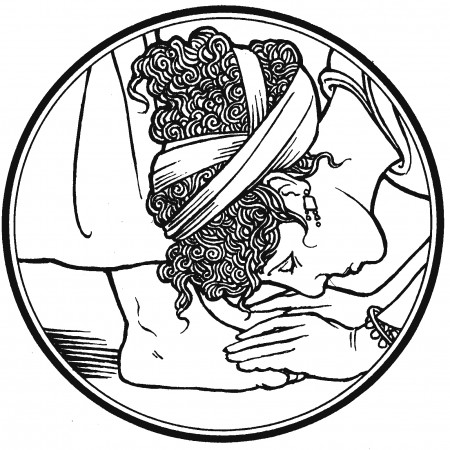The Sixteenth Sunday after Trinity Luke 7:11–17 + IN NOMINE IESU + We get emotional at weddings not simply because we’re happy for the newly wed couple. This is part of it but not all of it. We get emotional at weddings because we think of our own weddings, those we’ve been in and a…
Sermons by Rev. Jason M. Braaten (Page 50)
The Fourteenth Sunday after Trinity Luke 17:11–17 Audio only.
God’s Law is always good. His Word is always trustworthy. Sometimes, to our fallen reason, it seems contrary to what is good. We are like the friends of the healed man. We think, “What could be wrong with telling people about Jesus healing this deaf man?” When God’s Law seems contrary to what is good, we do best to repent and submit. When we don’t, when we insist on our way, we hurt ourselves and we hurt others. There are no victimless sins. That means white lies and choosing the lesser evil and whatever other things we use to cover up our sins, are dangerous and hurtful.
This parable was spoken to some who trusted in themselves, that they were righteous and despised others. Beware! We’ve heard this parable so many times we might be tempted to despise the pharisee, to think, “Oh, he is so arrogant and self-righteous. What a jerk!” Despise him and you’ve become him. Our Lord died also for him.
“Bless, for to this you were called, that you may obtain a blessing.”
Nevertheless, our Lord looked down upon the disciples and those who followed Him. He looked down, not in disapproval but with compassion. He told them to sit down. And then He looked up. He took the bread and the fish, and looking up to heaven, He gave thanks and distributed it them all. He gave them bread and fish to eat. They ate their fill, and there was more to go around, filling twelve baskets full of what was leftover. He provided for them more than they needed.
Midweek Lent 3 1 Peter 2:12–25 + IN NOMINE IESU + Our Father in heaven is calling us home and sometimes that journey brings suffering. This is not the suffering that we endure because we are fallen creatures living in a fallen creation. This isn’t the kind of suffering that attends physical ailments. Nor is…
The Third Sunday in Lent Luke 11:14–28 + IN NOMINE IESU + “The fool says in his heart, ‘There is no God’” (Psalm 14:1). We’re not as crass as that. We’re not thorough-going atheists, even though it seems to be the cool thing to do these days. But we do have a tendency toward this…
“But you are a chosen race, a royal priesthood, a holy nation, a people for his own possession, that you may proclaim the excellencies of him who called you out of darkness into his marvelous light. Once you were not a people, but now you are God’s people; once you had not received mercy, but now you have received mercy” (1 Pet 2:9–10).
Temptations to despair will come. Suffering and affliction will be with us always. And just as fire purifies gold and silver, burning up all the impurities, and just as it tempers steel, making it stronger, so it is that our Lord uses suffering and affliction, trial and testing to purify us and strengthen our faith. For our Father in heaven uses these things for our good, so that we do not become complacent but hope all the more for our homecoming in heaven. For suffering and affliction produce endurance; and endurance produces character; and character produces hope; and hope does not put us to shame because the love of the Father is pouring into our hearts through the Holy Spirit by the Word and promise of God (Rom 5:3–5). And this hope raises us up heavenward to fix our gaze upon the greater glory that shall be ours.







